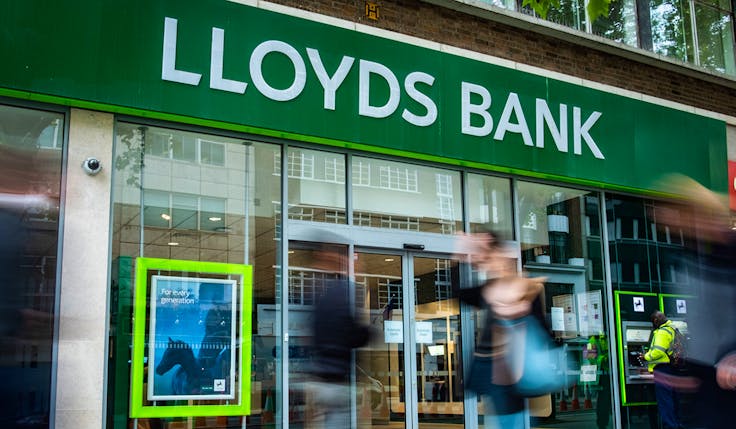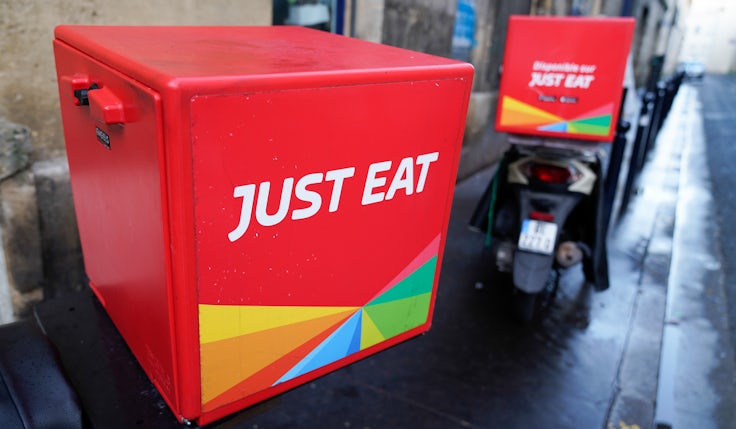Lloyds Bank ad banned for suspected ‘greenwashing’
The ASA has ruled against a LinkedIn post deemed to have given the impression renewable energy formed a “significant proportion” of Lloyds’ investments.
 The Advertising Standards Authority (ASA) has banned an advert from Lloyds Banking Group for making false environmental claims.
The Advertising Standards Authority (ASA) has banned an advert from Lloyds Banking Group for making false environmental claims.
The adverts, complained about by Adfree Cities, included a poster and three paid-for LinkedIn posts for Lloyds, all of which referenced Lloyds as being climate-conscious. Out of these, the ASA ruled one advert was in breach of CAP code.
The advert in question was a LinkedIn post stating what the company was doing to “help accelerate the transition to a low carbon economy”. The post was accompanied by a video showing electricity from a power station being used to power business, domestic buildings and an electric vehicle. The vehicle then drove through agricultural land and a woodland, with the closing text on screen reading: ‘Helping Britain Prosper’.
Adfree Cities, a network of groups which challenges the role of corporate outdoor advertising, complained all four of Lloyds’ adverts were “misleading because they omitted significant information about Lloyds’ contribution to carbon dioxide and greenhouse gas (GHG) emissions”.
Lloyds responded by stating the ads focus on companies the group works in partnership with, explaining the creative “made no claims in respect of the environmental or social credentials of the business or Lloyds, as they were not the focus of the campaign”.
Asda, Boohoo and Asos to change green claims in ads after watchdog probe
The bank added the claims in the ads were factually accurate and the company has targets in place to reduce the emissions intensity of its power sector clients by 81%, as well as reduce the absolute emissions from oil and gas clients by 50%, by 2030.
However, the ASA ruled the third LinkedIn post was in breach of the CAP Code for misleading advertising and environmental claims, and contradicted Lloyds’ 2023 sustainability report, which found the bank’s financed emissions in 2022 stood at to 32.8 million tonnes of carbon dioxide equivalent.
While the ASA appreciated consumers would understand from the ad Lloyds was taking steps to reduce its operational carbon and GHG emissions by using renewable energy, the creative also made wider claims about Lloyds’ financing of clean and renewable energy. The ad claimed, for example, Lloyds was putting the “weight of [its] finance” into renewable energy.
Those claims, combined with the imagery in the video, were deemed to have given the general impression renewable energy formed a significant proportion of Lloyds’ investments and the companies it financed.
In line with the bank’s 2023 sustainability report, the regulator claims “Investment in and financing of areas of climate risk comprised a notable amount of the company’s activities and would continue to do so in the near future.” Given that analysis, the ASA considered that meant, despite the impression given in the ad, Lloyds was “continuing to significantly finance businesses and industries that emitted notable levels of carbon dioxide and other GHGs.”
According to the regulator, that information would impact consumers’ understanding of the ad’s overall message and should have been made clear, making the advert misleading. The LinkedIn post must, therefore, not appear again in the form complained of. The other three adverts were not found to be in breach of the CAP code.
The ASA also told Lloyds it must put claims into context in future, for example by including information about the proportion of its business activities that comprise lower carbon activities.
Back in 2021, the ASA pledged to “crack down” on misleading environmental advertising and banned HSBC’s climate ads in the run-up to COP26 in 2022.
Earlier this year, the Competition and Markets Authority (CMA) secured agreements from Asda, Boohoo and Asos to change claims about the green credentials in their ads.
Elsewhere, in 2023 Unilever faced a CMA probe into its environmental claims amid concerns over the FMCG giant’s use of “vague and broad” language about the environmental impact of its products and claims some products were “exaggerating” how natural their ingredients were.






